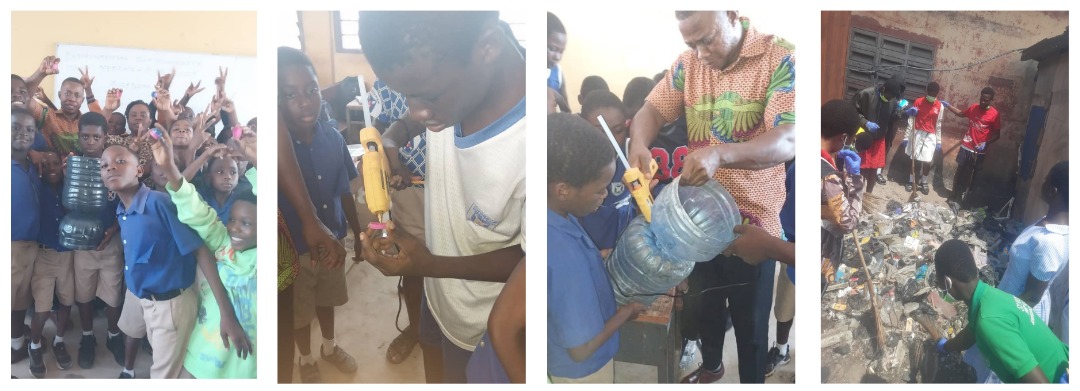hacked by kapl6bn
Written by: Joseph Matthew
In the fishing community of Chorkor in Accra, Ghana, a quiet but powerful movement is unfolding, and it’s being led by schoolchildren. At Chemunaa Cluster of Schools, Chorkor Presby Primary School, St. George’s Anglican Basic School, and St. Moses School, students have joined environmental clubs under the PRU Climate Action Project, and their efforts are showing that climate action doesn’t begin in boardrooms or summits, but in schools with young children.
These young learners are not only talking about climate change, they are living out solutions through the repurposing of plastic waste into colorful crafts, transforming used water dispenser bottles into flower vases, and leading clean-up campaigns in their communities. What might seem like small acts are, in fact, deep-rooted lessons in sustainability. But beneath these creative activities lies something even more critical, the intersection of climate action and WASH (Water, Sanitation, and Hygiene).
When we think of climate change, we often think of rising temperatures and sea levels. But one of its most immediate and devastating effects is its impact on water access and sanitation.
In Ghana, an alarming 58% of schools lack access to safe water facilities. For many students in communities like Chorkor, this means missing school due to waterborne illnesses such as cholera and typhoid, diseases that are entirely preventable with proper WASH infrastructure.
Without clean water and functional toilets, our students, especially girls, struggle to stay in school. Hygiene education suffers, and children’s health is constantly at risk. And when children are unwell or absent, their ability to learn about and respond to climate issues is diminished. This is why climate action must start with ensuring access to clean water and sanitation in schools. It’s not just a health issue; it’s a foundational part of building climate resilience.
Through the PRU Climate Action Project, these environmental clubs are planting more than trees; they’re planting a new way of thinking. Students are learning that their everyday choices, how they dispose of plastic, how they treat water, how they use school washrooms, are all connected to the health of the planet.
They are becoming not just environmental learners, but environmental leaders. In doing so, they are showing us that climate education is most powerful when it starts early, and that schools are fertile ground for growing the green leaders of tomorrow.
The story of Chorkor’s environmental clubs is a reminder that climate action doesn’t need to wait, and it doesn’t require high-level policy or expensive technology. Sometimes, it just takes a child, a plastic bottle, and a big idea. By embedding climate education into school life, and by connecting it to real-life challenges like WASH, we are not only protecting the environment, we are safeguarding the future of every child. That’s a future worth investing in.

